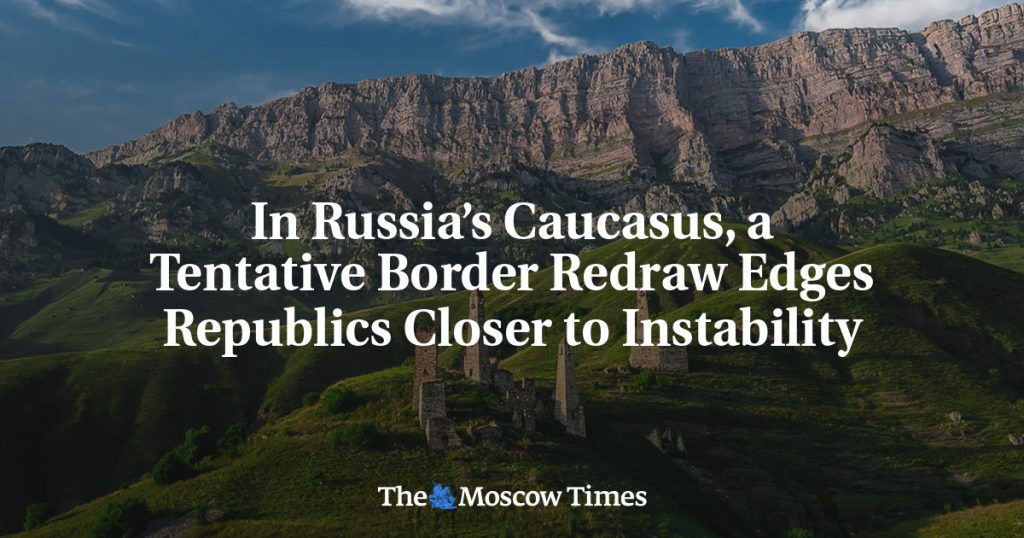The news of a potential border redraw between the neighboring republics of North Ossetia-Alania and Ingushetia in Russia’s North Caucasus region has sparked outrage and concern among residents of Ingushetia. Documents obtained by the independent news outlet, Fortanga, revealed that North Ossetian officials were planning to incorporate parts of Ingushetia’s territory into their own, leading to public outcry and threats of protests from the residents of Ingushetia. Many in Ingushetia, which is Russia’s smallest ethnic republic, were alarmed by the news and expressed their opposition to the border deal.
The proposed border redraw between North Ossetia and Ingushetia holds historical significance, as both regions have a complex history of territorial disputes and conflict. In 1944, hundreds of thousands of Chechens and Ingush were forcibly deported from their homeland, leading to the disbandment of the Chechen-Ingush ASSR and the allocation of its territory to neighboring regions and republics. The proposed border deal would further exacerbate tensions between the two regions, risking large-scale unrest and potential ethnic violence.
Despite the leaked documents and public outrage, some analysts believe that the proposed border redraw may not come to fruition. The timing and motivations behind the initiative are unclear, and there are concerns about the potential risks involved in such a move. In 2018, a controversial land swap deal between Ingushetia and Chechnya led to prolonged protests and political repression in Ingushetia, highlighting the sensitive nature of territorial disputes in the region.
The possibility of the Kremlin secretly approving a border deal between North Ossetia and Ingushetia cannot be ruled out, according to analysts and activists. The Kremlin’s influence in the region, combined with the historical context of territorial disputes, raises concerns about the potential for further unrest and instability. Participants in protests against the border deal have faced criminal prosecution, indicating a pattern of political repression in response to dissent.
The unresolved nature of the territorial dispute between North Ossetia and Ingushetia has led to speculation about the Kremlin’s intentions and the potential for further conflict in the region. The activists and analysts interviewed express concerns about the lack of resolution and the potential for escalation of tensions. The historical grievances and deep-rooted beliefs among the Ingush population about the return of their lost territories further complicate the situation and raise fears of future unrest and conflict.
In conclusion, the proposed border redraw between North Ossetia and Ingushetia has reignited historical tensions and raised concerns about the potential for unrest and violence in the region. The unresolved nature of the territorial dispute, combined with political repression and historical grievances, creates a volatile situation that requires careful consideration and diplomatic resolution. The involvement of the Kremlin and the ongoing protests against previous border deals underscore the complexity of the situation and the challenges facing the region.


